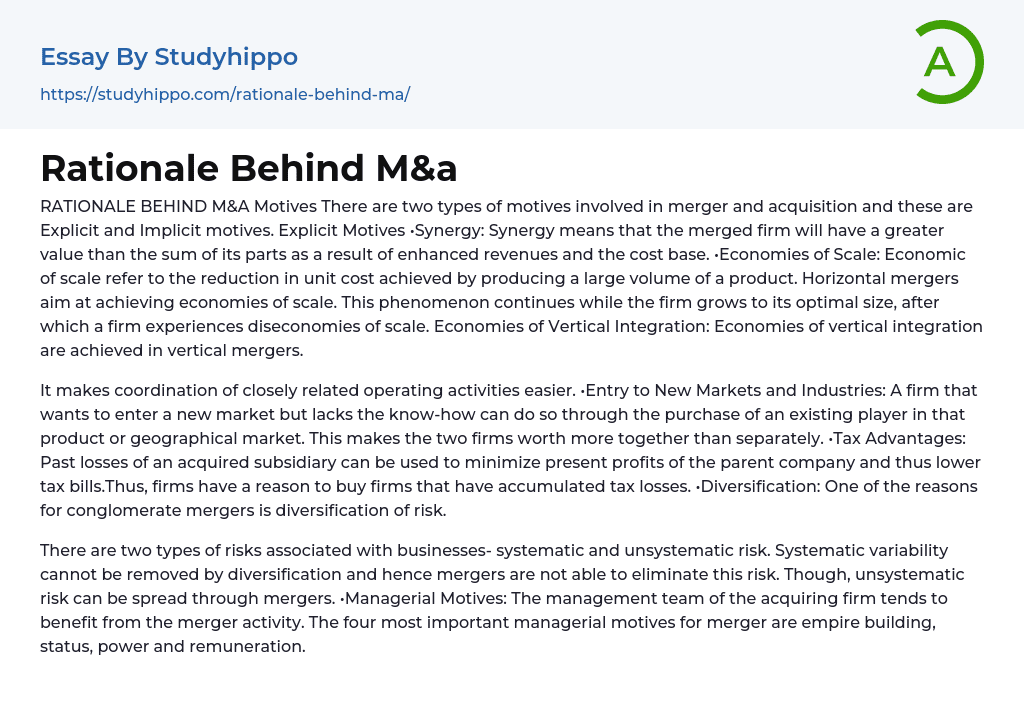There are two types of motives involved in merger and acquisition and these are Explicit and Implicit motives. Explicit Motives
- Synergy: Synergy means that the merged firm will have a greater value than the sum of its parts as a result of enhanced revenues and the cost base.
- Economies of Scale: Economic of scale refer to the reduction in unit cost achieved by producing a large volume of a product. Horizontal mergers aim at achieving economies of scale. This phenomenon continues while the firm grows to its optimal size, after which a firm experiences diseconomies of scale.
- Economies of Vertical Integration: Economies of vertical integration are achieved in vertical mergers. It makes coordination of closely related operating activities easier.
- Entry to New Markets and Industries: A firm that wants to enter a new market but lacks the know-how can do so thr
...ough the purchase of an existing player in that product or geographical market. This makes the two firms worth more together than separately.
- Tax Advantages: Past losses of an acquired subsidiary can be used to minimize present profits of the parent company and thus lower tax bills.Thus, firms have a reason to buy firms that have accumulated tax losses.
- Diversification: One of the reasons for conglomerate mergers is diversification of risk.
There are two types of risks associated with businesses- systematic and unsystematic risk. Systematic variability cannot be removed by diversification and hence mergers are not able to eliminate this risk. Though, unsystematic risk can be spread through mergers. Managerial Motives: The management team of the acquiring firm tends to benefit from the merger activity. The four most important managerial motives for merger are empire
View entire sampleJoin StudyHippo to see entire essay
building, status, power and remuneration.
- Accounting essays
- Marketing essays
- Automation essays
- Business Cycle essays
- Business Model essays
- Business Operations essays
- Business Software essays
- Corporate Social Responsibility essays
- Infrastructure essays
- Logistics essays
- Manufacturing essays
- Multinational Corporation essays
- Richard Branson essays
- Small Business essays
- Cooperative essays
- Family Business essays
- Human Resource Management essays
- Sales essays
- Market essays
- Online Shopping essays
- Selling essays
- Strategy essays
- Management essays
- Franchising essays
- Quality Assurance essays
- Business Intelligence essays
- Corporation essays
- Stock essays
- Shopping Mall essays
- Harvard Business School essays
- Harvard university essays
- Trade Union essays
- Cooperation essays
- News Media essays
- Waste essays
- Andrew Carnegie essays
- Inventory essays
- Customer Relationship Management essays
- Structure essays
- Starting a Business essays
- Accounts Receivable essays
- Auditor's Report essays
- Balance Sheet essays
- Costs essays
- Financial Audit essays
- International Financial Reporting Standards essays
- Tax essays
- Accountability essays
- Cash essays
- Principal essays




